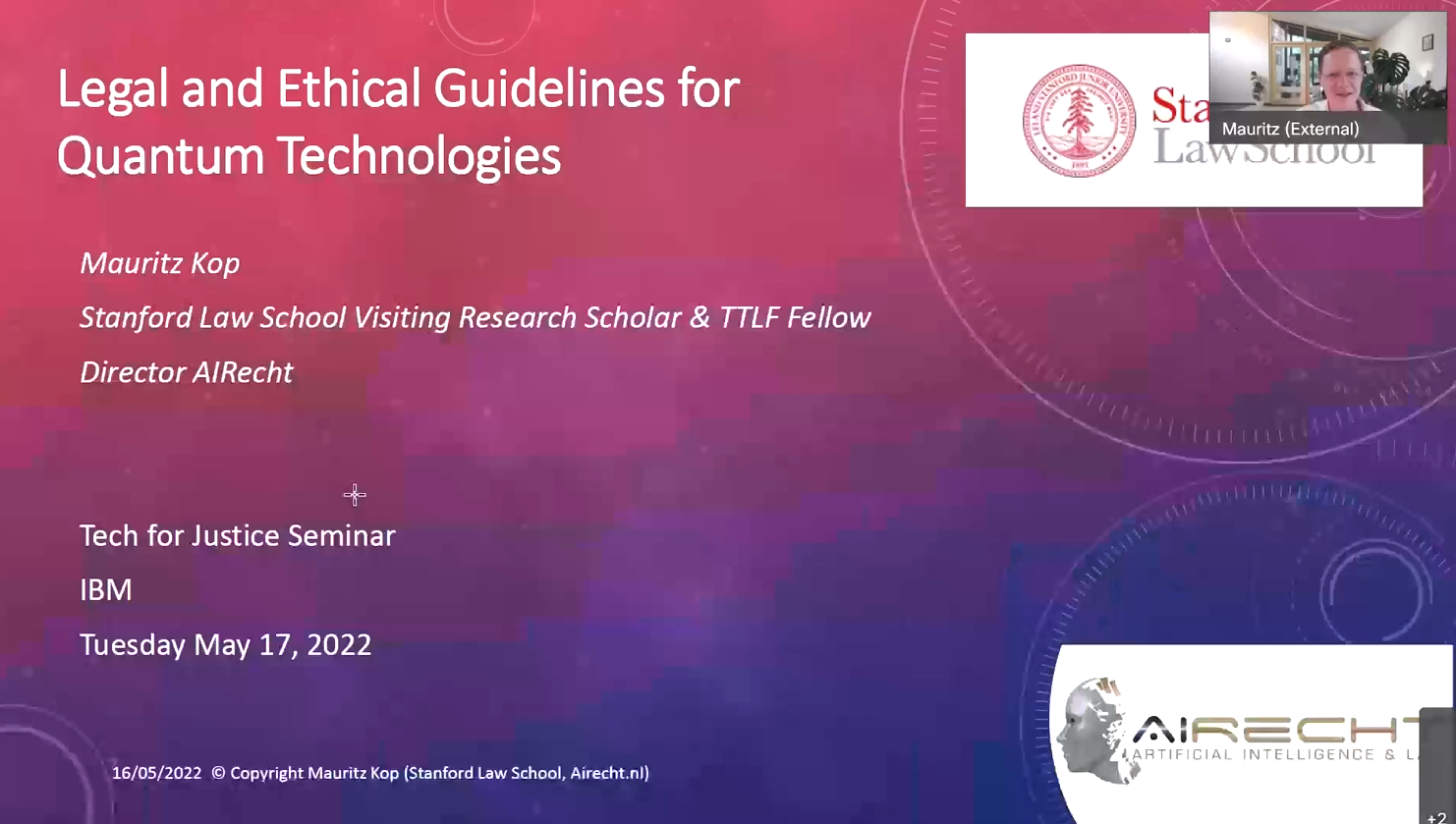Paris, January 9, 2025— As quantum technologies advance at a rapid pace, global institutions are turning to leading experts to help shape the ethical and policy frameworks that will govern this transformative era. Mauritz Kop, a prominent scholar in the field of quantum law and governance Founding Director of the Stanford Center for Responsible Quantum Technology, has been actively consulting with two of the world's foremost international bodies: the United Nations Educational, Scientific and Cultural Organization (UNESCO) and the Organisation for Economic Co-operation and Development (OECD). His contributions are helping to build a global consensus on the responsible development and deployment of quantum technologies.
Expert Opinions for UNESCO and its World Commission on the Ethics of Scientific Knowledge and Technology (COMEST)
UNESCO, through its World Commission on the Ethics of Scientific Knowledge and Technology (COMEST), is at the forefront of establishing global ethical norms for emerging technologies. COMEST is an advisory body composed of leading international scholars tasked with formulating ethical principles to guide decision-makers beyond purely economic considerations.
Recognizing his expertise, COMEST invited Mauritz Kop to an exclusive Expert Hearing on May 13, 2024. This session was convened to gather insights for the Commission's forthcoming landmark report on the "Ethics of the Research, Development and Deployment of Quantum Computing Technologies." Together with three other experts who each presented different perspectives, Kop was asked to present his research on Responsible Quantum Technology, quantum-ELSPI (Ethical, Legal, Societal, and Policy Implications), and bespoke governance frameworks for Quantum Information Science (QIS). His scholarship - often co-authored with RQT Fellows such as Mateo Aboy, Eline de Jong, Mark Brongersma, and Raymond Laflamme, provides the Commission with state-of-the-art analysis of the ethical and governance challenges, helping to enrich the foundation of their upcoming report.
Stanford Law’s Mauritz Kop Provides Recommendations on UNESCO Preliminary Draft: 'Ethics of Quantum Computing'
Following the request to participate in the expert hearing, Stanford Law’s Mauritz Kop was formally invited to provide written recommendations on the "Preliminary Draft Report on the Ethics of Quantum Computing" on January 9, 2025. This invitation underscores the value of his contributions to the Commission's work. While the draft itself remains confidential, its direction can be understood through its public predecessor, the "Concept note of the World Commission on the Ethics of Scientific Knowledge and Technology (COMEST) on the ethics of quantum computing," published on July 24, 2024.
The concept note lays out a comprehensive vision for the ethical governance of quantum computing. It correctly asserts that while quantum technology is still in its early stages, the time to establish ethical guardrails is now, learning from the reactive approach taken with other technologies like social media. The note emphasizes that quantum technology is not neutral; its development and use have profound social and political impacts.
Mauritz Kop Invited by OECD to Speak on Global Policy and National Strategies for Responsible Quantum Technology Development
In addition to his work with UNESCO, Mauritz Kop was invited by the OECD to contribute his expertise to its Global Forum on Technology (GFTech) event, "Future in flux? Global policy issues and national strategies for responsible quantum technology development," held in November 2023. The event was originally scheduled to take place in Tel Aviv, Israel, but was moved to a virtual format due to regional unrest.
Looking Ahead: The International Year of Quantum Science and Technology 2025
The work of UNESCO and the OECD is particularly timely, as the United Nations has officially declared 2025 the International Year of Quantum Science and Technology (IYQ 2025). This global initiative, led by UNESCO, marks the 100th anniversary of the development of modern quantum mechanics and aims to raise global awareness of the importance of quantum science and its applications.
Meer lezen

